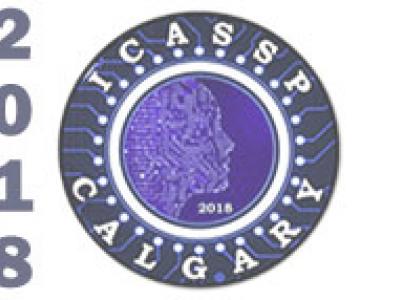
- Read more about On Sequential Random Distortion Testing of Non-Stationary Processes
- Log in to post comments
Random distortion testing (RDT) addresses the problem of testing whether or not a random signal deviates by more than a specified tolerance from a fixed value. The test is non-parametric in the sense that the distribution of the signal under each hypothesis is assumed to be unknown. The signal is observed in independent and identically distributed (i.i.d) additive noise. The need to control the probabilities of false alarm and missed de- tection while reducing the number of samples required to make a decision leads to the SeqRDT approach.
- Categories:
 12 Views
12 Views
- Read more about On Sequential Random Distortion Testing of Non-Stationary Processes
- Log in to post comments
Random distortion testing (RDT) addresses the problem of testing whether or not a random signal deviates by more than a specified tolerance from a fixed value. The test is non-parametric in the sense that the distribution of the signal under each hypothesis is assumed to be unknown. The signal is observed in independent and identically distributed (i.i.d) additive noise. The need to control the probabilities of false alarm and missed de- tection while reducing the number of samples required to make a decision leads to the SeqRDT approach.
- Categories:
 9 Views
9 Views